Event waste management
We all love community events, but they can generate a lot of waste. As an event organiser, you're required to make sure you:
- plan your significant events (1,000 people or more) to minimise and divert waste
- measure the results
- report those results back to Council.
You can find out more about waste management and minimisation in our Rubbish and recycling section.
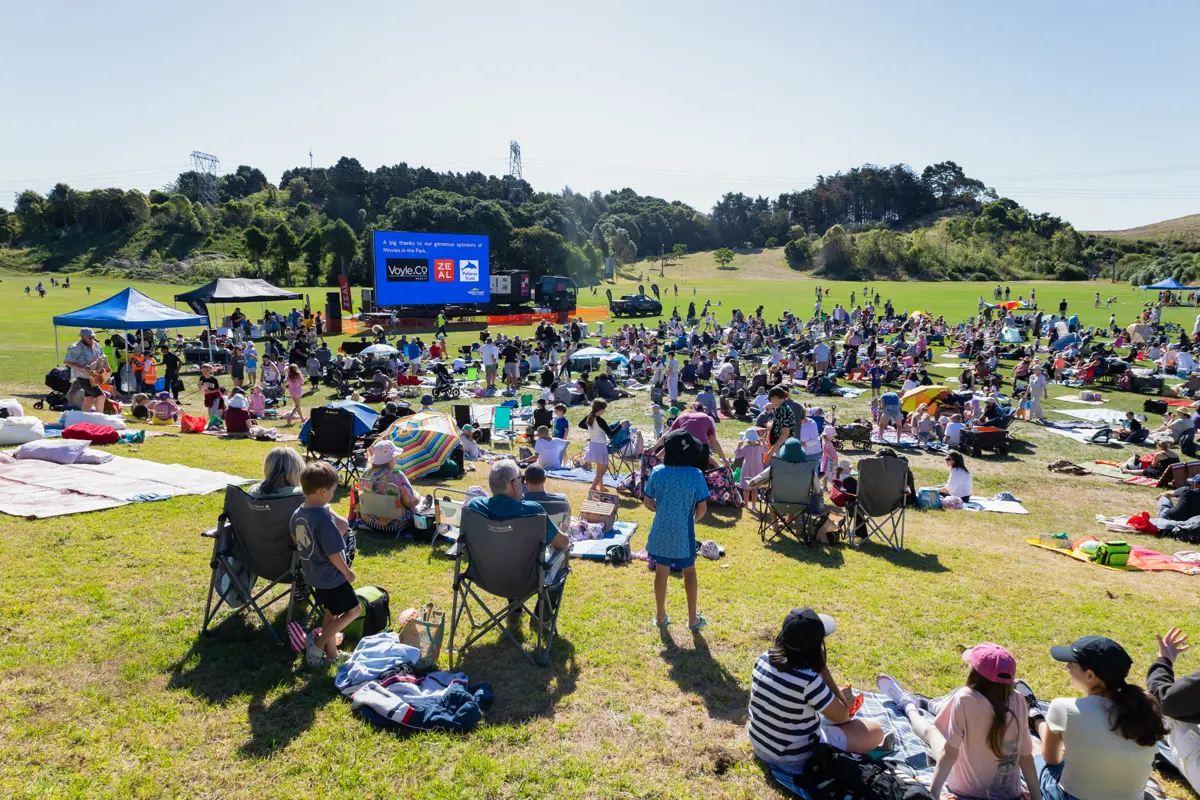
As the event manager, you're responsible for submitting your event waste management and minimisation plan to Council for approval at least 30 working days before your event. We strongly recommend you make and submit your plan to us at least 4–6 months before the event starts.
Regularly occurring recreational activities, such as weekly sports events, don't need to submit a plan.
If your event is smaller than 1000 attendees, it's best practice to complete the event waste plan template, as it will help you minimise your event’s waste.
You’ll need to provide us with a waste analysis report after your event; this will be a condition of your waste plan approval.
Working with our partner councils, we've produced the following brochures to support your event planning:
- Reducing waste at your event [PDF 3.75 MB]
- Event packaging guidelines for event organisers and food vendors in the Wellington region [PDF 934 KB]
Guide to creating your plan
Step 1 – Read our guide to Reducing waste at your event [PDF 3.75 MB].
Step 2 – Work out what types of waste is likely to be generated by your event (for example, rubbish, recycling and compost).
Step 3 – Plan how you'll include reusables, if possible.
Step 4 – Book a contractor(s) to collect rubbish, recycling and organics.
Step 5 – Book bins to collect waste and recycling – we have limited numbers of bin hoods available to hire.
Step 6 – Think about what provisions you'll put in place for diverting food waste.
Note: we expect significant events to divert food waste from landfill, if feasible; we can decline approval of a plan if food waste diversion cannot be provided for.
Step 7 – Check your event will comply with the regional event packaging guidelines.
You must comply with these guidelines if either:
- the material will be composted at a commercial composting facility capable of receiving certified compostable packaging
- you're running a significant event on Council-owned land.
Step 8 – Prepare your plan to let your vendors and stallholders know about these packaging requirements.
Step 9 – Check the number of public litter bins within the event's site boundary.
Step 10 – Prepare your site plan, including the location of:
- waste stations
- waste sorting and storage facilities
- signage
- site entry and exit points
- food and beverage vendors
- merchandise vendors
- all public litter bins in the event site
- the route to be used by collection vehicles to access the waste storage facilities during the event, if applicable.
Write and submit your plan
There's an easy-to-follow template to complete this report. By integrating waste planning early into your event Council staff can support your sustainability and zero waste goals with advice and connect you to helpful resources.
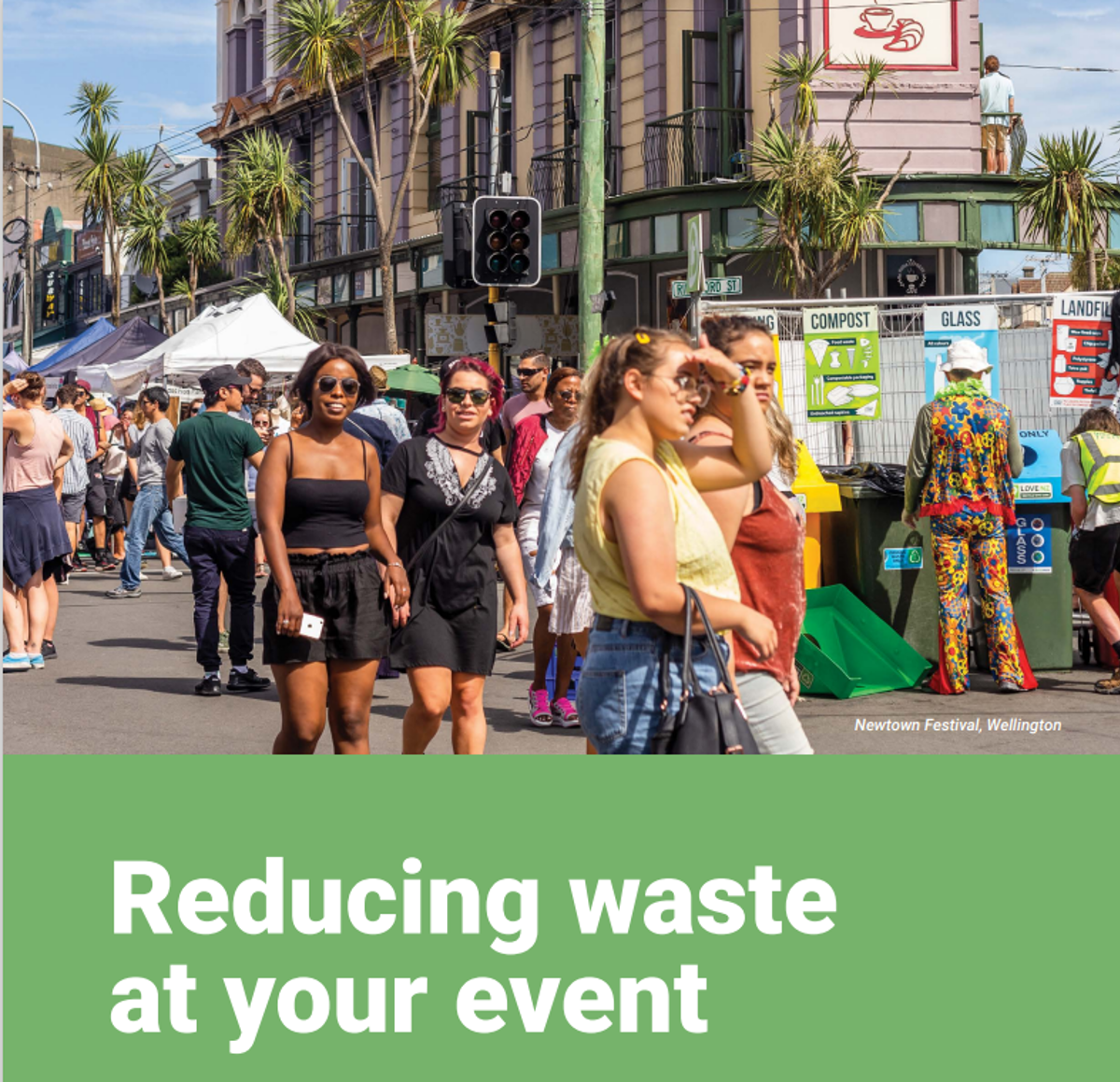
Download 'Reducing waste at your event' guide [PDF 3.75 MB]
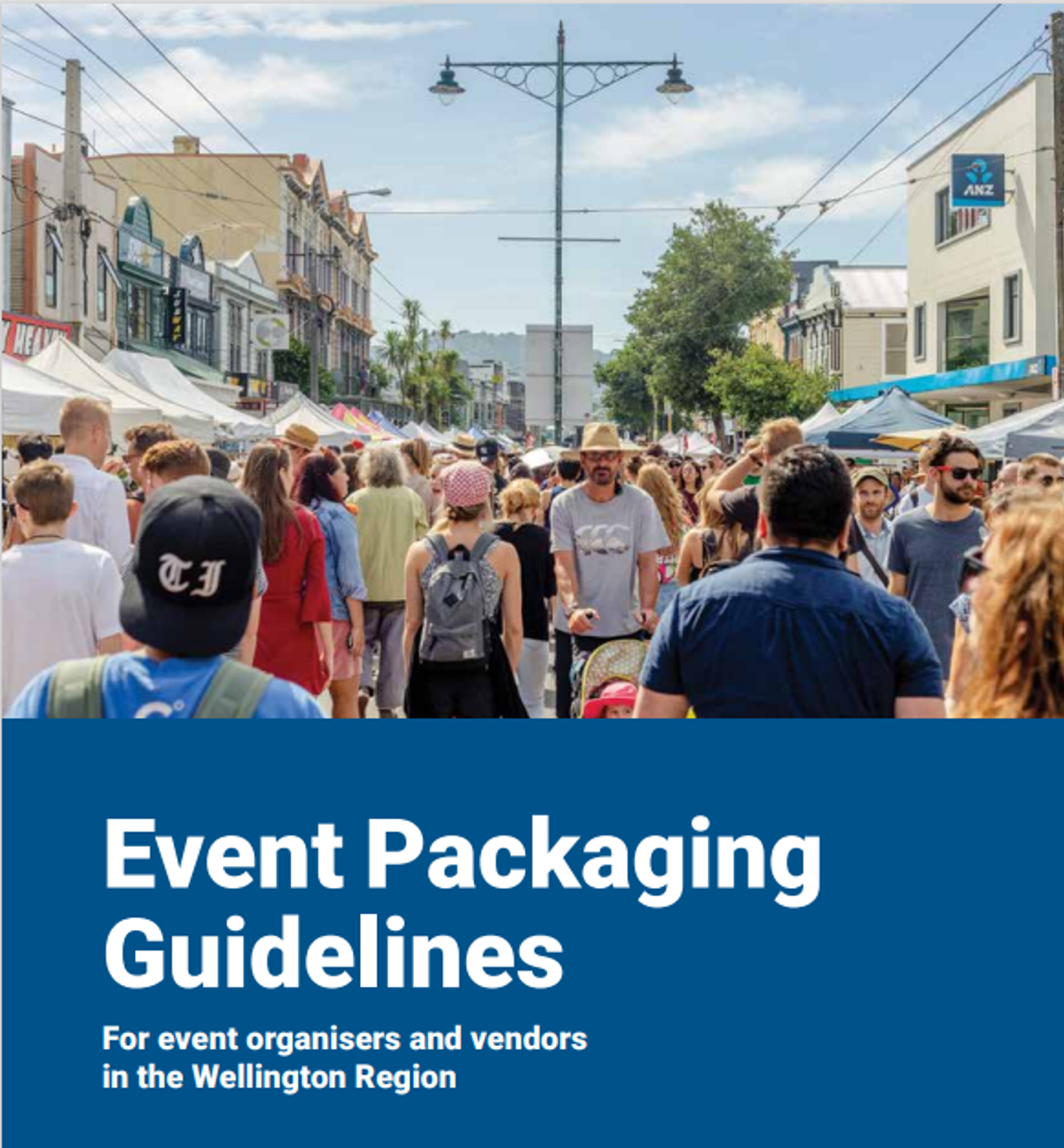
Download Event Packaging Guidelines brochure [PDF 934 KB]
Bookable event waste resources
We have the following available to borrow for free for your event:
- nine sets of colour-coded bilingual bin hoods to fit over 240L wheelie bins
- 14 public litter bin covers to cover fixed street bins during your event
- an event audit/site clean-up kit.
Note that we don’t have wheelie bins for hire – contact Rubbish and recycling collectors to arrange these.
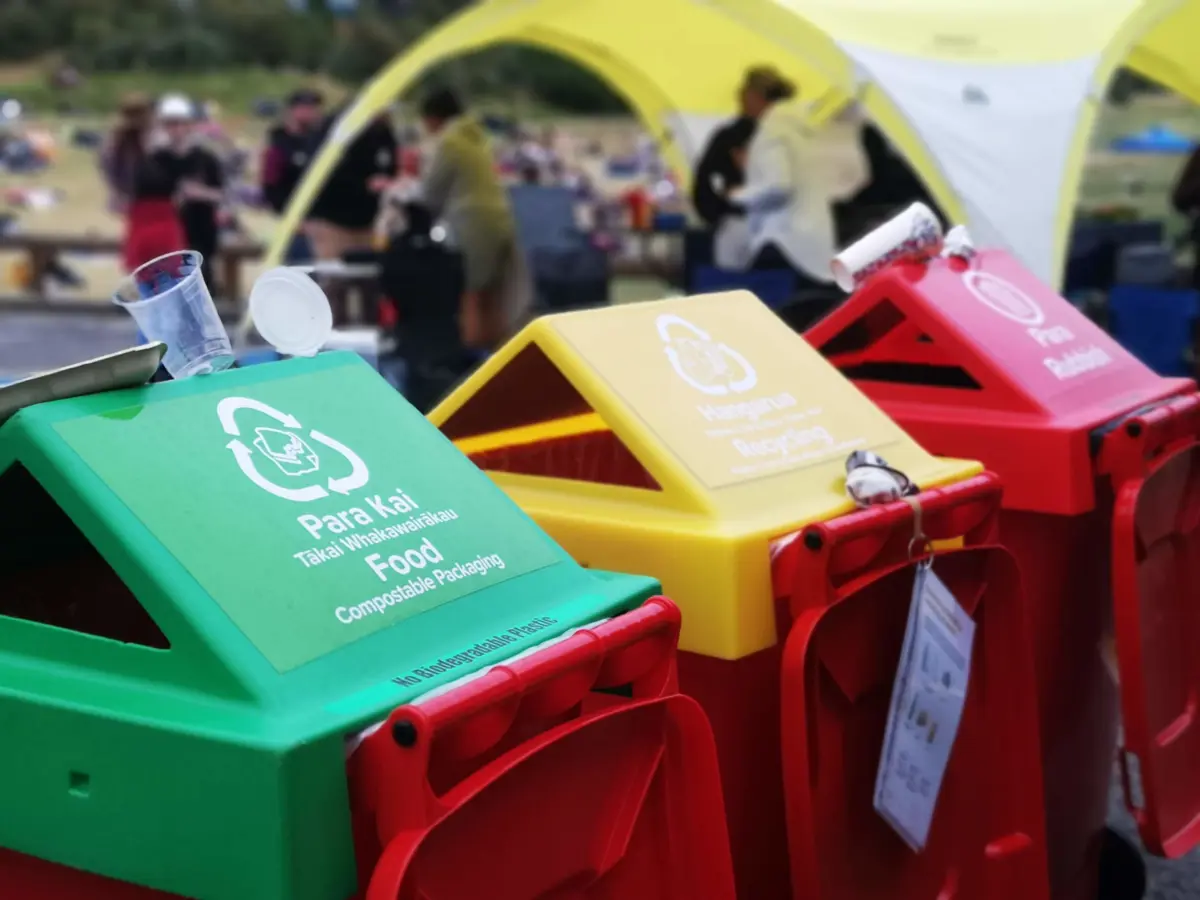 Colour-coded bilingual bin hoods to fit 240L wheelie bins
Colour-coded bilingual bin hoods to fit 240L wheelie bins
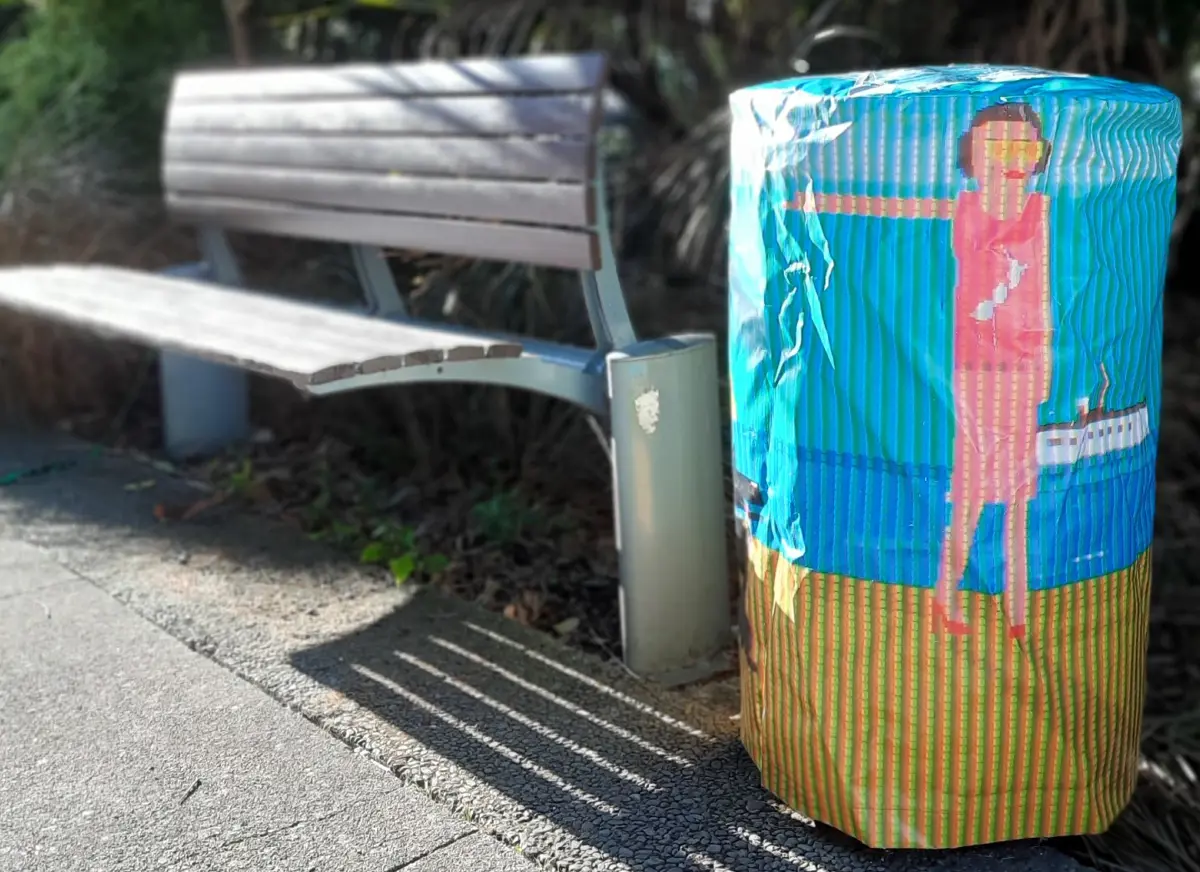 Bin covers to close fixed public litter bins during your event.
Bin covers to close fixed public litter bins during your event.
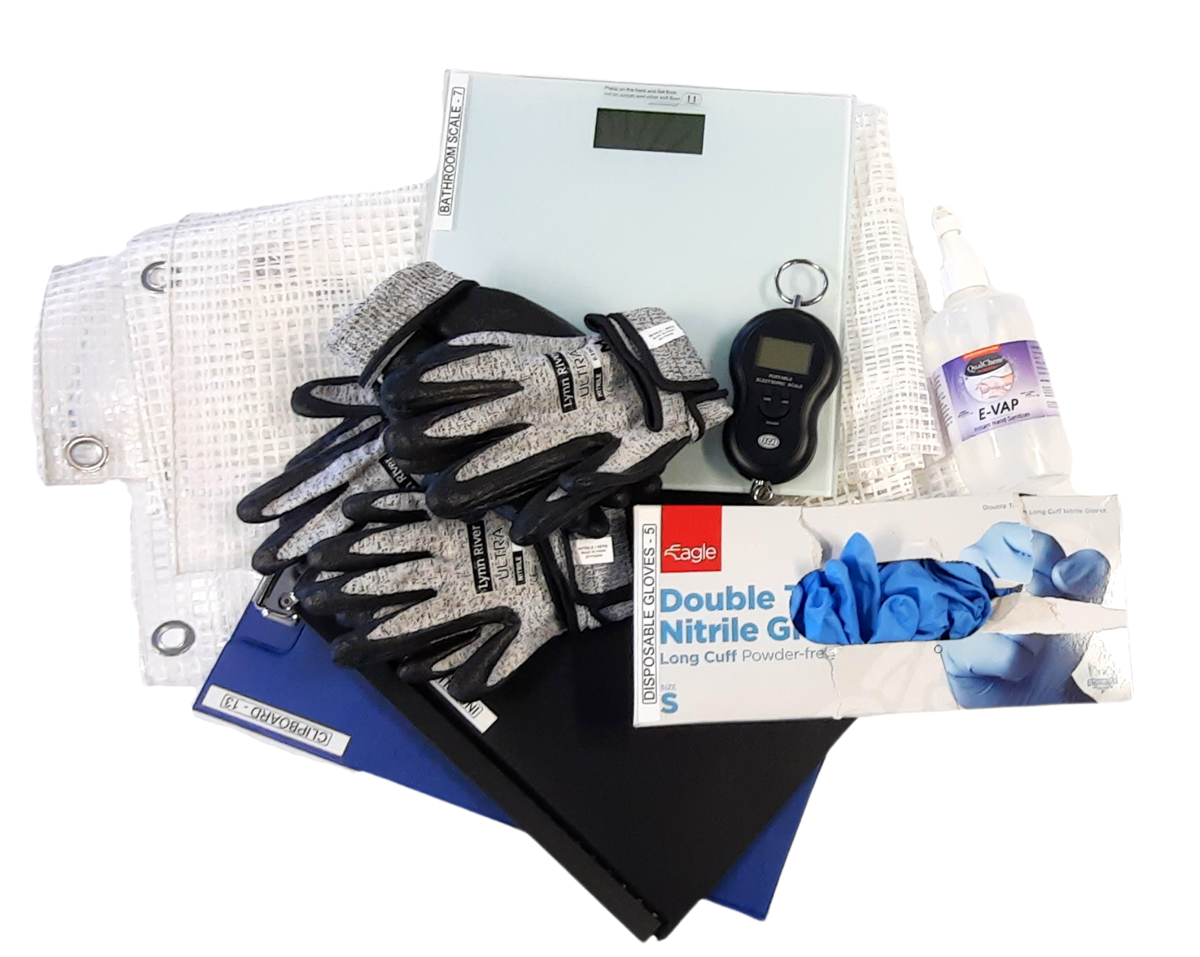 Event waste audit and clean-up kit
Event waste audit and clean-up kit
Post event waste analysis report
On completion of the event, the event manager must provide the Council with a waste analysis report, which at a minimum, will include a breakdown of:
- The types of waste generated by the event;
- The amounts of waste (by type) generated by the event;
- The amount of waste diverted; and
- The waste management facilities used to recover, recycle, treat or dispose of this waste.
Event waste management workshops
With effective planning and waste operations onsite, it's possible to divert more than 90 percent of your event’s waste from landfill. Kāpiti Coast District Council supports event organisers, stallholders, and food and drink vendors to reduce waste at events.
To do this, we run free event waste management workshops on a semi-regular basis; keep an eye on this page and our Upcoming events for new dates as they’re added.
Workshops are run on demand when minimum numbers are met. Send us your details and we will be in touch when new workshops are planned.

Kāpiti Strawberry Festival
Follow the journey festival organisers took to making this community event waste-free and their key-learnings.
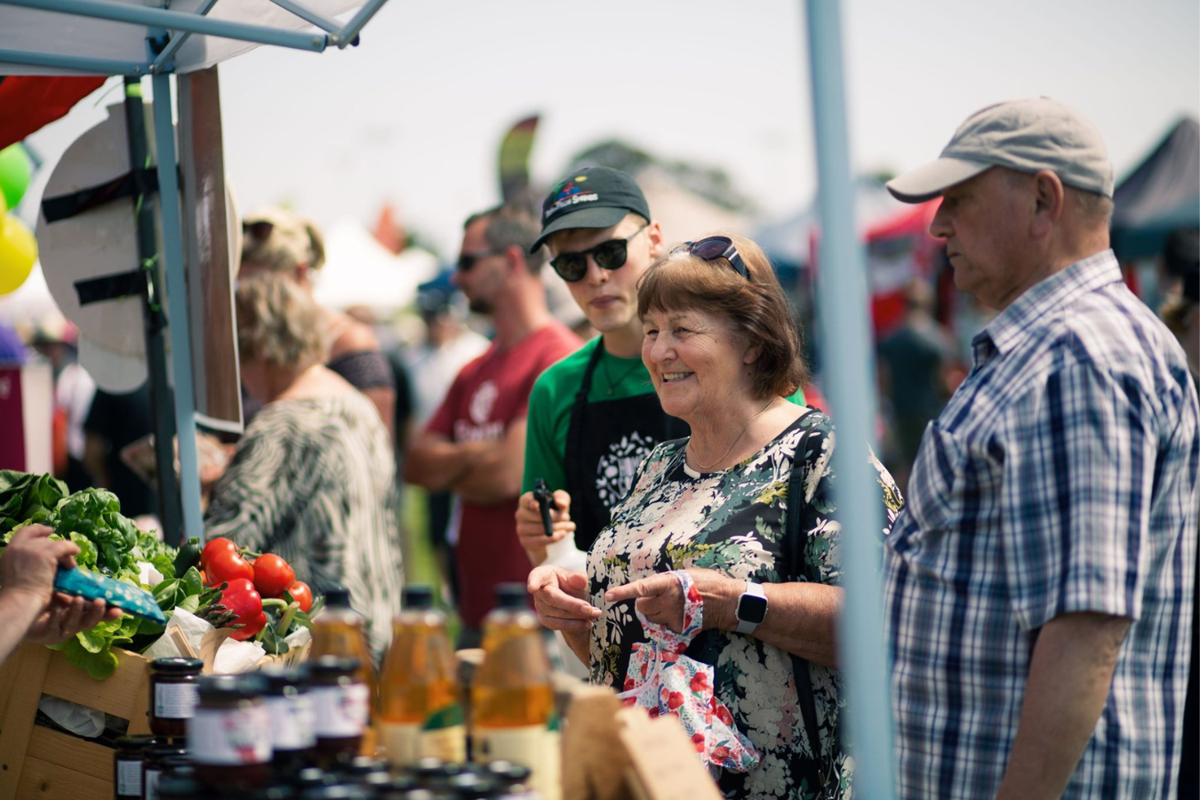
Kāpiti Food Fair
Find out how the event organisers maximised opportunities to separate the waste better and improve their waste management.